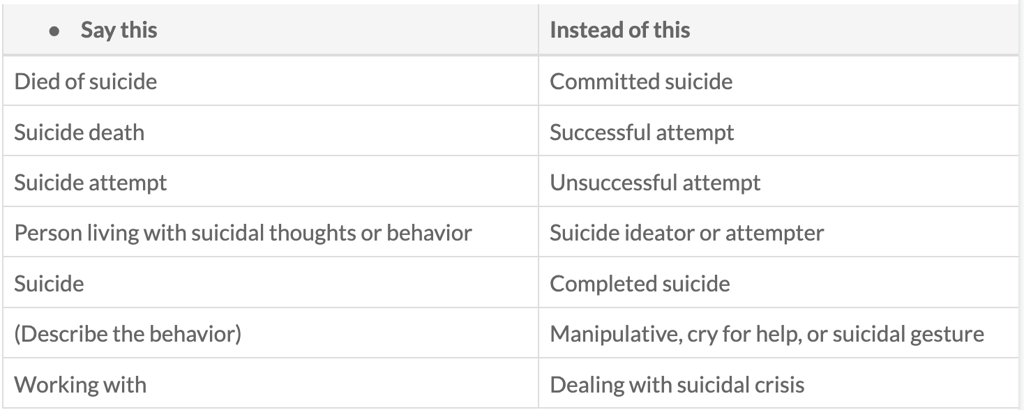Why You Need to Stop Saying “Committed Suicide”
The words we use around suicide matter more than we think. In this episode, we dive into why the phrase "committed suicide" is outdated, harmful, and rooted in a history where ending your life was considered a criminal act - even here in Australia.
5/25/20253 min read


Why You Should Stop Saying “Committed Suicide”
The words we use around suicide matter—and it's time we stopped using outdated and harmful language.
Watch full video
Why You Should Stop Saying “Committed Suicide”
Why Language Matters When We Talk About Suicide
It wasn’t that long ago that suicide was actually illegal in Australia—and still is in several countries today. That’s why the phrase “committed suicide” carries more weight than most people realise.
When you say someone committed suicide, you’re using the same verb you’d use for “committed murder” or “committed robbery.” The language implies wrongdoing, criminality, even moral failure. But suicide is not a crime. It’s a mental health issue. And if we want to change the way we support people who are struggling, we have to start by changing the way we talk about it.
Why Was Suicide Ever a Crime?
Religion played a massive role in criminalising suicide. In many countries, taking your own life was once considered not just a sin, but a literal crime against God—and by extension, a crime against the state.
In medieval England, for example, dying by suicide could result in your family being stripped of their property. The idea was: outlawing suicide might “save souls” and protect the kingdom’s economic interests. Sounds wild now, but that’s the root of the stigma that still lingers.
Where Suicide Is Still Illegal Today
Sadly, in some parts of the world, suicide is still treated as a crime. Countries like Saudi Arabia, Bangladesh, and Sierra Leone have laws that can punish survivors of suicide attempts with prison. And in some cases, even grieving families can face consequences.
So while changing our language might feel like a small act, it’s part of a much bigger global conversation—one that literally affects lives.
Religious Belief vs Legal Reform
Even in countries where suicide has been decriminalised, many people still view it through a moral or religious lens. This is why outdated phrases persist.
When someone says “committed suicide,” they may not mean to judge—they might just be repeating what they were taught. But intention doesn’t cancel out impact. And if our goal is to reduce stigma and increase understanding, then it’s time to update our vocabulary.
What Not to Say (And What to Say Instead)
Here are some terms to avoid, and why:
“Committed suicide” – implies a crime or sin
“Successful suicide” – equates death with achievement
“Failed suicide attempt” – implies that someone failed at dying, which adds cruelty to pain
“Completed suicide” – sounds cold and procedural
Instead, try:
“Died by suicide”
“Took their own life”
“Ended their life”
In Australia, it's also becoming common to hear “she suicided,” which offers a more neutral and straightforward tone.
Why Language Matters to the Grieving, Too
When someone dies by suicide, their loved ones are often left navigating complex grief and intense judgement. There’s no one to blame—so people often blame the family.
Parents, in particular, can carry immense guilt even when they did everything they could. Words like “committed suicide” add to that burden. The right language can’t erase their pain, but it can ease it. It can offer compassion instead of condemnation.
It’s Not About Being “Politically Correct”
This is about being human. It’s about giving people dignity in death, and empathy in grief. If we want to create a culture where people feel safe to ask for help—without shame—then it starts with how we talk about suicide.
Ready to Learn More or Get Support?
If this topic struck a chord, we’ve got resources to help you keep learning and start meaningful conversations.
🎁 Download our free digital resource kit – filled with practical tools for grief, mental health, and supporting others
🧠 Book a one-on-one session – talk with a professional in a safe, compassionate space
Final Thoughts
So—next time you find yourself talking about suicide, pause and choose your words with care. Saying “died by suicide” isn’t just more accurate—it’s kinder.
It’s a small shift that could mean everything to someone grieving. And it’s one step closer to a world where mental health is taken seriously, and no one suffers in silence.
👉 Go talk death.

